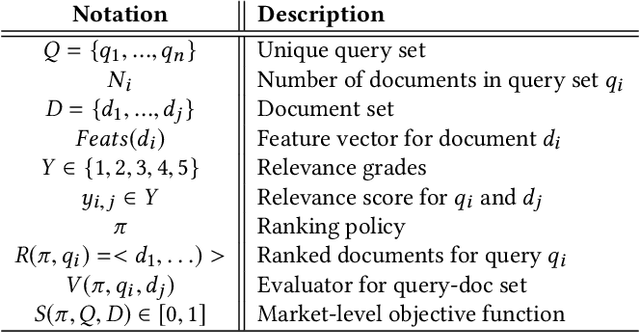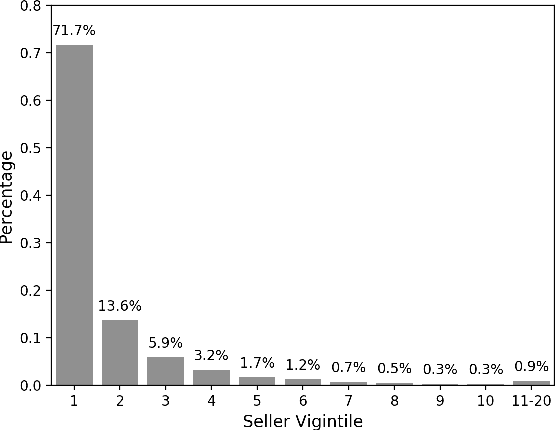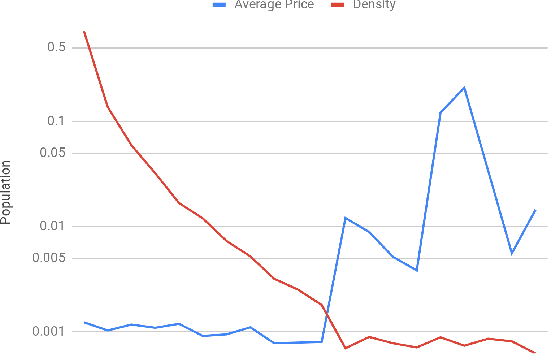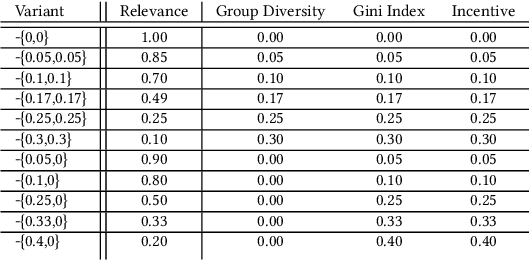Congzhe Su
Factorized Transport Alignment for Multimodal and Multiview E-commerce Representation Learning
Dec 19, 2025Abstract:The rapid growth of e-commerce requires robust multimodal representations that capture diverse signals from user-generated listings. Existing vision-language models (VLMs) typically align titles with primary images, i.e., single-view, but overlook non-primary images and auxiliary textual views that provide critical semantics in open marketplaces such as Etsy or Poshmark. To this end, we propose a framework that unifies multimodal and multi-view learning through Factorized Transport, a lightweight approximation of optimal transport, designed for scalability and deployment efficiency. During training, the method emphasizes primary views while stochastically sampling auxiliary ones, reducing training cost from quadratic in the number of views to constant per item. At inference, all views are fused into a single cached embedding, preserving the efficiency of two-tower retrieval with no additional online overhead. On an industrial dataset of 1M product listings and 0.3M interactions, our approach delivers consistent improvements in cross-view and query-to-item retrieval, achieving up to +7.9% Recall@500 over strong multimodal baselines. Overall, our framework bridges scalability with optimal transport-based learning, making multi-view pretraining practical for large-scale e-commerce search.
Fairness-aware Differentially Private Collaborative Filtering
Mar 16, 2023Abstract:Recently, there has been an increasing adoption of differential privacy guided algorithms for privacy-preserving machine learning tasks. However, the use of such algorithms comes with trade-offs in terms of algorithmic fairness, which has been widely acknowledged. Specifically, we have empirically observed that the classical collaborative filtering method, trained by differentially private stochastic gradient descent (DP-SGD), results in a disparate impact on user groups with respect to different user engagement levels. This, in turn, causes the original unfair model to become even more biased against inactive users. To address the above issues, we propose \textbf{DP-Fair}, a two-stage framework for collaborative filtering based algorithms. Specifically, it combines differential privacy mechanisms with fairness constraints to protect user privacy while ensuring fair recommendations. The experimental results, based on Amazon datasets, and user history logs collected from Etsy, one of the largest e-commerce platforms, demonstrate that our proposed method exhibits superior performance in terms of both overall accuracy and user group fairness on both shallow and deep recommendation models compared to vanilla DP-SGD.
Revenue, Relevance, Arbitrage and More: Joint Optimization Framework for Search Experiences in Two-Sided Marketplaces
May 15, 2019



Abstract:Two-sided marketplaces such as eBay, Etsy and Taobao have two distinct groups of customers: buyers who use the platform to seek the most relevant and interesting item to purchase and sellers who view the same platform as a tool to reach out to their audience and grow their business. Additionally, platforms have their own objectives ranging from growing both buyer and seller user bases to revenue maximization. It is not difficult to see that it would be challenging to obtain a globally favorable outcome for all parties. Taking the search experience as an example, any interventions are likely to impact either buyers or sellers unfairly to course correct for a greater perceived need. In this paper, we address how a company-aligned search experience can be provided with competing business metrics that E-commerce companies typically tackle. As far as we know, this is a pioneering work to consider multiple different aspects of business indicators in two-sided marketplaces to optimize a search experience. We demonstrate that many problems are difficult or impossible to decompose down to credit assigned scores on individual documents, rendering traditional methods inadequate. Instead, we express market-level metrics as constraints and discuss to what degree multiple potentially conflicting metrics can be tuned to business needs. We further explore the use of policy learners in the form of Evolutionary Strategies to jointly optimize both group-level and market-level metrics simultaneously, side-stepping traditional cascading methods and manual interventions. We empirically evaluate the effectiveness of the proposed method on Etsy data and demonstrate its potential with insights.
 Add to Chrome
Add to Chrome Add to Firefox
Add to Firefox Add to Edge
Add to Edge